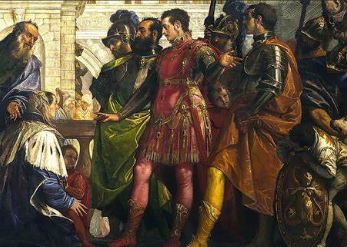Alexander the Great, one of history’s most renowned military leaders, has fascinated scholars for centuries. His conquests reshaped the ancient world, yet much about him remains shrouded in mystery—including his physical stature. Questions about Alexander’s height and weight often emerge as people seek to understand the man behind the legend.
In this article, we explore the historical accounts and modern interpretations surrounding Alexander the Great’s height and weight. We’ll examine ancient sources, contextualize their claims, and discuss how his physical attributes may have influenced his leadership and military prowess.
1. The Historical Context of Alexander the Great
1.1 Early Life and Ascendancy
Born in 356 BCE in Pella, Macedonia, Alexander was the son of King Philip II and Queen Olympias. His upbringing included rigorous military training and a classical education under Aristotle. By the age of 20, Alexander ascended the throne, swiftly embarking on campaigns that would establish him as a legendary conqueror.
1.2 Military Achievements and Leadership
Alexander’s military career was unparalleled. He led his army through Asia Minor, Egypt, Persia, and India, forging one of the largest empires of the ancient world. His strategic brilliance and ability to inspire loyalty were key to his success.
2. Accounts of Alexander the Great’s Physical Appearance
2.1 Ancient Descriptions of Alexander’s Stature
Contemporary historians such as Plutarch, Arrian, and Curtius Rufus provide limited but intriguing insights into Alexander’s appearance. They often describe him as handsome, with a commanding presence, but offer varying details about his height and weight.
2.2 The Debate on Alexander’s Height
Historians disagree on the precise height of Alexander. Ancient sources suggest he was shorter than average for a Macedonian man, possibly around 5 feet 5 inches (165 cm). However, Greek and Roman cultural biases often depicted leaders as taller than they truly were.
2.3 Estimations of Alexander’s Weight
Estimating Alexander’s weight is even more speculative. Given his active military lifestyle, he likely weighed between 150 to 160 pounds (68 to 72 kg), with a lean and muscular build suited for combat.
3. The Influence of Height and Weight on Leadership
3.1 Physical Presence and Charisma
Alexander’s physical presence, regardless of height, was amplified by his charisma. His ability to lead by example and inspire confidence in his troops often overshadowed any perceived physical shortcomings.
3.2 Combat Effectiveness and Agility
A lean, muscular build would have given Alexander significant advantages in battle. Agility and endurance were more valuable than sheer size in the type of warfare he engaged in, emphasizing speed and tactical precision.
4. Comparisons with Other Historical Figures
4.1 Julius Caesar and Napoleon Bonaparte
Alexander is often compared to leaders like Julius Caesar and Napoleon Bonaparte, who were also known for their smaller stature. Like Alexander, these men demonstrated that leadership transcends physical size.
4.2 Historical Perceptions of Height and Leadership
In ancient and modern contexts, height is often equated with power. However, Alexander’s legacy underscores that intellectual acumen and strategic brilliance far outweigh physical dimensions.
5. Misconceptions and Modern Interpretations
5.1 Misconceptions About Alexander’s Stature
Popular culture sometimes depicts Alexander as a towering figure. However, evidence suggests this portrayal is exaggerated. Historical records consistently lean toward a more modest height.
5.2 Reassessing Historical Biases
Modern historians caution against relying on ancient descriptions at face value. Writers of the time often embellished their accounts to enhance the perceived greatness of historical figures.
6. The Role of Physical Attributes in Ancient Warfare
6.1 Physical Fitness in the Macedonian Army
The Macedonian military placed a premium on physical fitness. Soldiers, including Alexander, were expected to maintain peak physical condition, emphasizing endurance and agility over brute strength.
6.2 Armor and Weaponry Considerations
Alexander’s height and weight likely influenced the type of armor and weapons he used. Lighter armor and versatile weapons would have complemented his swift, mobile style of combat.
7. Alexander’s Legacy Beyond Physicality
7.1 Intellectual Accomplishments and Cultural Impact
Alexander’s legacy extends far beyond his physical traits. He spread Hellenistic culture across his empire, founding cities and fostering the exchange of ideas.
7.2 The Enduring Mystery of Alexander’s Life
Despite the numerous biographies and studies, Alexander’s true physical attributes remain elusive. This mystery only adds to the allure of his legend.
Conclusion
Alexander the Great’s height and weight, though frequently speculated upon, hold little bearing on his historical significance. His enduring legacy lies in his military genius, cultural impact, and the profound influence he had on the ancient world. While he may not have been physically imposing by modern standards, his achievements demonstrate that true greatness is measured by intellect, strategy, and leadership. For more info visit Techno Buss.
FAQs
1. How tall was Alexander the Great?
Historical estimates suggest Alexander was approximately 5 feet 5 inches (165 cm) tall, though accounts vary.
2. What was Alexander the Great’s weight?
Based on his active lifestyle, Alexander likely weighed between 150 and 160 pounds (68 to 72 kg).
3. Did Alexander’s height affect his leadership?
No, Alexander’s leadership was defined by his strategic brilliance and charisma, not his physical stature.
4. How do historians know Alexander’s height and weight?
Historians rely on ancient texts, sculptures, and modern interpretations to estimate Alexander’s physical attributes.
5. Was Alexander shorter than other historical leaders?
Compared to leaders like Julius Caesar and Napoleon Bonaparte, Alexander’s height was similar, emphasizing that leadership is not tied to physical size.

